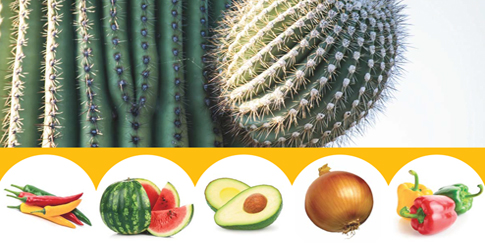Not repeating past mistakes
Sykes recalls how in 2010 when the United States refused to open its borders to Mexican trucks, purportedly due to safety concerns, and Mexico imposed a 20 percent tariff on apples and other items in retaliation. Ultimately, the stalemate didn’t benefit either side.
“I think there will be changes at some point, but I don’t think they’ll be consequential as NAFTA has worked for a long time,” Sykes says.
Ley Vela looks at the situation in a slightly different way, citing both present and future impact. “There is nothing we can do right now,” he posits. “Until we can put our finger on changes and where they will take us, we’ll continue with the status quo.
If anything,” Ley Vela adds, “the uncertainty is dissuading and even stopping future expansion projects, though not creating a decrease in production at this time.”
“Retooling is definitely a concern for importers,” observes Righetti. “Everyone down here believes in free trade, and most are worried about adverse changes. The impact goes beyond the border,” he points out.
“There are California and other domestic growers who have built farms in Mexico to seek relief from U.S. land and labor costs,” Righetti continues, adding, “and they don’t want an obstruction to expanding their businesses across the border.”
Concluding Thoughts
With plenty of questions and no answers, produce buyers and sellers are doing what they always do: getting up early in the morning to load and unload trucks and ship fruit and vegetables across the country.
This year, they’ve battled extreme weather and rampant trade rumors, but nothing has stopped the flow of goods in and out of Mexico or Nogales.
Image: Smeerjewegproducties/Shutterstock.com



